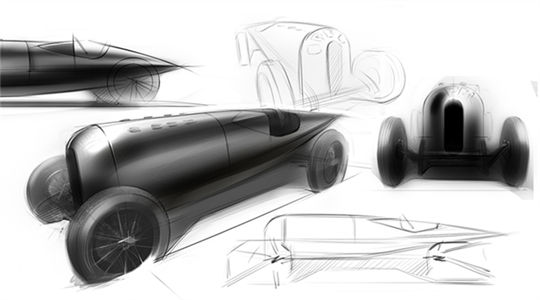
当前课程知识点:Hospitality English > 5 LIERATURE REVIEW AND ANALYSIS > 5.3 Content of Literature Review > 5.3.2 Conceptualization and theoretical framework
返回《Hospitality English》慕课在线视频课程列表
In the last video, we have learned concepts, propositions and theories in the literature review, and in this video, what we will learn is the conceptualization and how to put forward the theoretical framework.
What is conceptualization?
Why we need to conceptualize in literature review?
We would like to invite you to share some thoughts in the comments section below.
返回《Hospitality English》慕课在线视频列表
在文献综述中
在讨论了概念 命题和理论之后
现在我们需要做的是概念化
并提出理论框架
什么是概念化
当我们把研究问题提炼出来
在一个清晰的理论框架下进行讨论
这就是所谓的概念化
而理论框架则是利用已有的理论
来解释研究中概念或变量之间的关系
什么是概念框架
如果研究暂时不能找到相应的理论作为依据
则可利用普遍被人们接受的命题或学说
对各变量之间的关系作说明
我们还可以看到
理论框架和概念框架是不同的
至于你在文献综述中使用哪种框架
这取决于实际的研究设计
对于概念和理论框架的作用
一个清晰的概念框架或理论框架
对于我们撰写文献综述
因为一个概念框架或理论框架
可以统领文献知识
呈现与研究相关的概念
及其相互关系
也可以呈现研究设计方法
此外 还可以作为
整理 分析和解释研究成果的依据
概念框架或理论框架有两个特点
也是我们在使用它们时要注意的
也就是说 当我们使用它们时 它们应该符合其特点
首先 概念框架或理论框架应
反映概念或变量之间的逻辑关系
其次 概念框架或理论框架具有指导性特征
即当我们使用它们时
它们应该能够指导我们研究方案的设计
数据收集方法的选择
以及研究工具的设计
应注意以下逻辑特征
首先 我们应该知道问题是怎么产生的
其次 让我们选择解决问题的办法
再次 确定进行问题分析的有关变量
然后 最重要的一步是在分析问题的
整个体系中将各种关系概念化
最后 我们可以对问题分析的结果进行假设
这是一个概念和理论框架的示例
文章讲的是关于旅游中的社会接触
从这张图中我们可以看出
在最上面的是社会接触的两个维度
即决定因素和接触目的
在漏斗的中间
有三种类型的社交互动
即客-主接触 客-社区接触和客-客接触
图的底部是不同社会接触的结果
即接触的决定因素和目的
会影响不同类型接触的影响结果和属性
从以上分析可以看出
文章研究框架清晰
不同层次可以反映出不同的维度或变量
整个框架图形可以反映概念之间的关系
至此 我们已经了解理论框架
我们希望下次你在进行文献综述或撰写其他论文时
能够为自己的研究主题设计一个清晰的框架图
-1.1 Hospitality and Tourism
--1.1.1 Introduction of hospitality
--1.1.2 Introduction of tourism (1)
--1.1.3 Introduction of tourism (2)
--1.1.4 Basic conception of tourism (1)
--1.1.5 Basic conception of tourism (2)
-1.2 Tourism Industries
--1.2.4 Convention & exhibition
--1.2.5 Entertainment & recreation
-1.3 Nature of Tourism Businesses
--1.3.2 Characteristics of hospitality
--Week 1 Quiz
-2.1 Basic Approaches and Etiquette of Hospitality
--2.1.1 Basic approaches and etiquette of hospitality
-2.2 Meet and Greet at Accommodations
--2.2.3 Know how to offer more
-2.3 Meet and Greet at Other Situations of Hospitality
--2.3.1 At transportation services
--2.3.3 At conventions and exhibitions
--2.3.4 At entertainment and recreation situations
-2.4 Communication Skills of Online Travel Agency
--2.4.1 Communication skills of online travel agency
--Week 2 Quiz
-3.1 Culture and Communication
--3.1.2 The characteristics of culture
--3.1.3 What is communication?
--3.1.5 Myths of communication
-3.2 Barriers to Cross-cultural Communication
-3.3 Cross-cultural Communication
--3.3.2 Cross-cultural verbal communication
--3.3.3 Hofstede's cultural dimensions (1)
--3.3.4 Hofstede's cultural dimensions (2)
-3.4 International Practice in Cross-cultural Communication
--3.4.1 International practice in cross-cultural communication
--Week 3 Quiz
-4.1 Getting to Know Tourism Literature
--4.1.1 Significance of tourism literature
--4.1.2 Proper way to choose for reading
-4.2 Capturing the Main Ideas
--4.2.1 Starting with the title & abstract
--4.2.2 Following the structure to focus
--4.2.3 Identifying topic sentences
-4.3 Accumulating Idiomatic Expressions
--4.3.1 Expressions of defining & categorizing
--4.3.2 The extensive use of passive voice
-4.4 Summarizing Reading & Thinking
--4.4.1 Writing a summary of your readings
--4.4.2 Taking notes of your thinking
--Week 4 Quiz
-5.1 What Is A Literature Review
--5.1.1 The definition and types of literature review
--5.1.2 Systematic approaches of literature review
-5.2 Collection and Analysis of Literature
--5.2.2 Methods of literature collection
--5.2.3 Analysis of literature
-5.3 Content of Literature Review
--5.3.1 Concepts, propositions, and theories
--5.3.2 Conceptualization and theoretical framework
--5.3.3 Operationalization of the research framework
-5.4 Evaluate Your Literature Review
--5.4.1 Evaluation of your literature review
--Week 5 Quiz
-6.1 Basic Structure of MTA Thesis/Project
--6.1.5 Reference and acknowledgement
-6.2 Stages of Completing a Thesis
--6.2.1 Thesis initiation stage - research design
--6.2.2 Thesis initiation stage -research methodology(1)
--6.2.3 Thesis initiation stage - research methodology(2)
--6.2.4 Thesis initiation stage - research proposal
--6.2.5 Thesis writing and completion stage
-6.3 Essentials in Managing a Successful Thesis
--Week 6 Quiz
--Final Quiz
